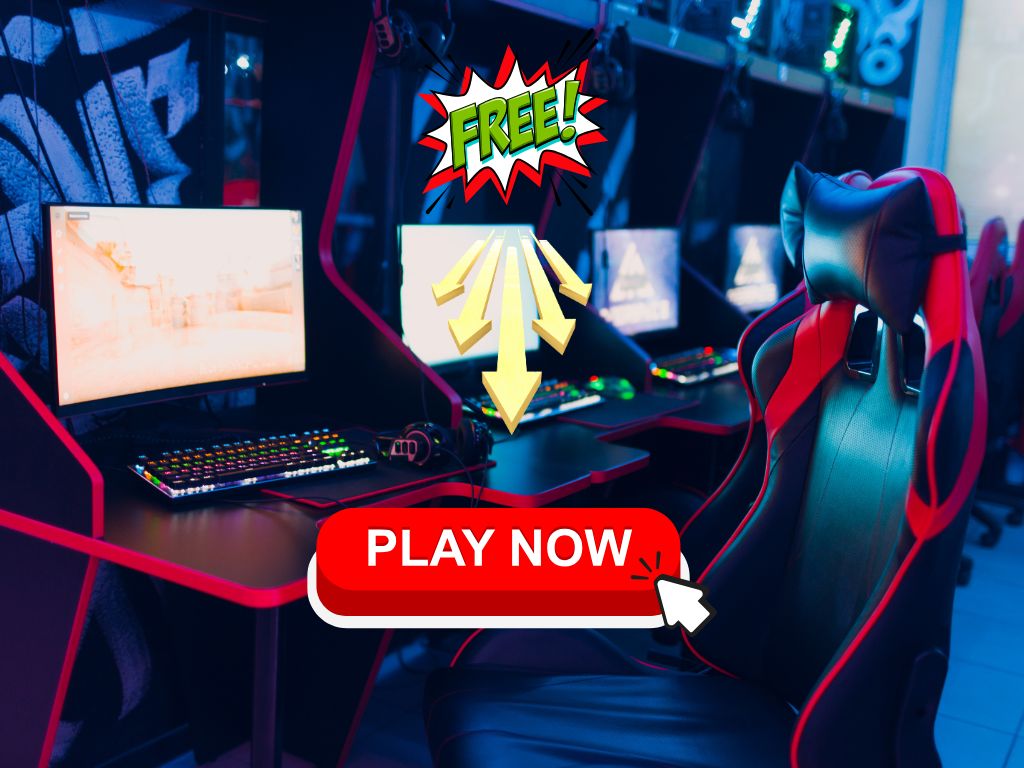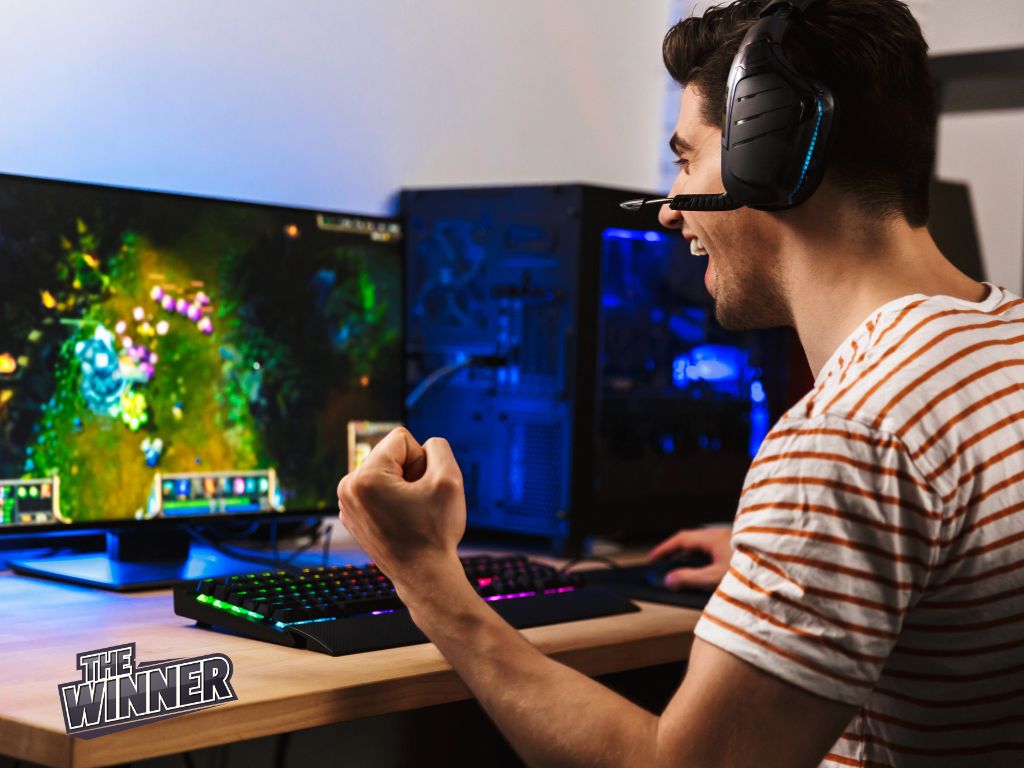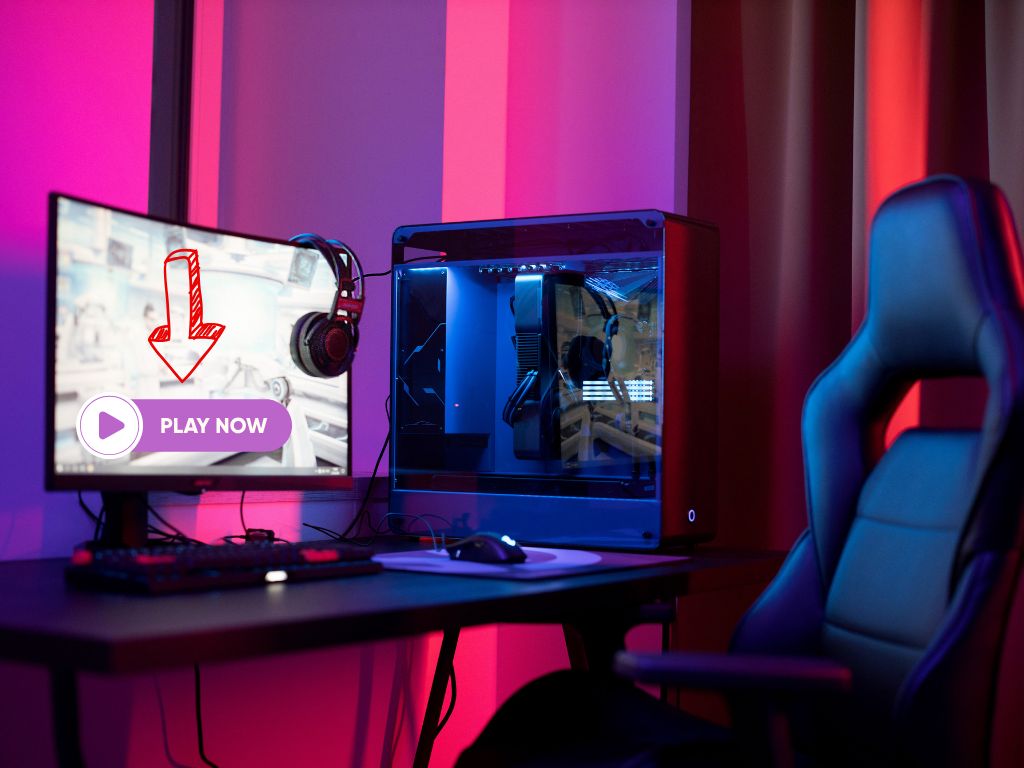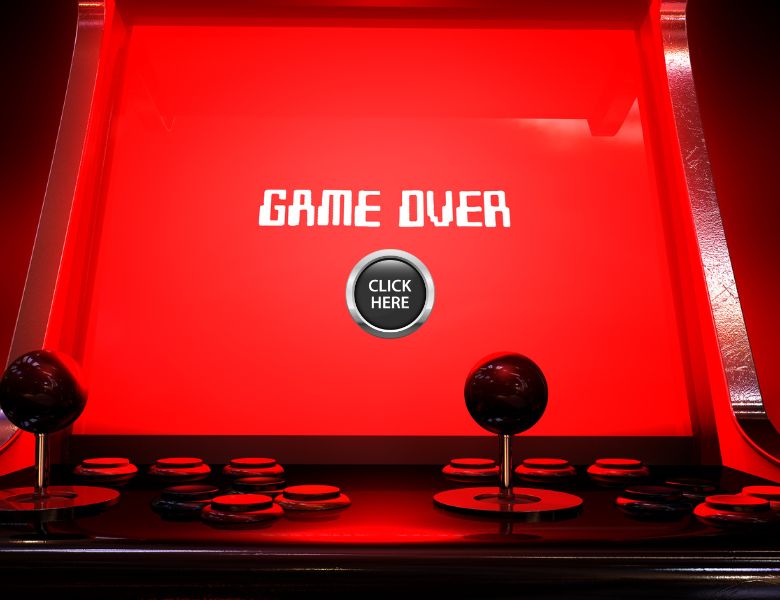The Future of Video Games: Culture, Connection, and Creativity
Forget What You Think You Know About Video Games
It started in a dark arcade. A joystick, a flashing pixel, a handful of kids chasing high scores. Today, video games are a global force — reshaping how we tell stories, build communities, and imagine the future.
From Minecraft worlds to Fortnite concerts, from esports arenas to Twitch streams, video games have rewritten the rules of culture, creativity, and connection.
If you're still thinking of gaming as "just playing," you're already living in the past.
Esports events like the League of Legends World Championship drew over 100 million live viewers — more than the NBA Finals.
Streaming platforms like Twitch averaged 31 million daily active users, turning ordinary players into global celebrities overnight.
Gaming didn’t just grow up — it exploded. But why? What happened to turn pixelated arcades into billion-dollar stadiums?
- Technology caught up to imagination. The first consoles delivered novelty. The PlayStation, Xbox, and powerful PCs delivered immersion — believable worlds, breathtaking graphics, stories that could finally compete with film.
- The internet rewired the social fabric. LAN parties became MMOs. Multiplayer became Massively Multiplayer. No longer limited by geography, players could build global friendships, alliances, and rivalries.
-
Gaming became culture, not just entertainment. From Fortnite concerts to Twitch rivalries to TikTok dances born from games, gaming bled into mainstream music, sports, fashion, and film. In short: Gaming became how we live, not just how we play.
Stat: The gaming industry will surpass $340 billion by 2027 — outpacing global film box office and music streaming combined. - Gamers became creators. Platforms like Minecraft, Roblox, and Modded Servers flipped the relationship. Gamers stopped just consuming content — they started creating worlds.
What This Means
Gaming isn’t a niche anymore. It’s not even just an industry. It’s a language. A culture. A global economy. Gamers are no longer “other.” They are mainstream. The joystick revolutionized more than a generation — it rewired how humanity plays, learns, connects, and dreams.
Storytelling and Emotional Design: Why We Play (and Feel)
It used to be simple. Get the high score. Beat the boss. Win the game.
But today? Winning is secondary. Feeling is everything. Modern games don’t just test your reflexes — they hit you right in the heart.
Think about it: The Last of Us didn't just tell a zombie story. It told a story about love, loss, and impossible choices — and left millions emotionally wrecked.
Red Dead Redemption 2 wasn’t just a cowboy game. It was a deep meditation on honor, betrayal, and redemption.
Journey, a game with no dialogue, managed to create one of the most emotionally resonant multiplayer experiences ever — where strangers helped each other without a single word.
Games have evolved into something powerful: 👉 Interactive, emotional storytelling engines where you are the main character.
How Storytelling Changed Gaming Forever
In the early days, games told almost no story. You were a plumber saving a princess. A yellow dot eating ghosts. Fun? Sure. Emotional? Not really.
But as technology advanced, games evolved. They started to mimic the complexity of novels, films, and life itself — with complex character arcs, moral dilemmas with no clear answers, and worlds that respond emotionally to your decisions. This changed everything. Players weren’t just competing against each other; they were experiencing something personal.
The Science Behind Emotional Gaming
Studies show that interactive storytelling activates deeper emotional and cognitive responses than passive media like film or TV. When players make decisions, they feel ownership of the outcomes. They don't just watch a character’s fall from grace — they cause it.
Quote: “Games allow us to live stories, not just witness them.” — Dr. Katherine Isbister, author of How Games Move Us
That sense of agency — “I did this” — creates emotional memories that last longer and feel stronger than passive entertainment. It’s not just entertainment; it’s identity formation.
Real-World Proof
The Last of Us Part II generated thousands of essays, podcasts, and debates — and intense emotional backlash from players, not just critics.
Undertale, a simple pixelated indie game, spawned entire fan cultures, music covers, and cosplay events because of its emotional twists.
Players don’t just remember the controls or the levels; they remember how the game made them feel — and that changes everything.
What This Means
In the future, the most successful games won’t just be bigger or faster — they’ll be deeper. Story-driven design will push gaming beyond entertainment into therapy, education, culture-building, and identity-shaping. Gaming isn’t about escaping reality anymore; it’s about stepping into richer, more immersive stories — and becoming part of them.
Future Tech: How AI, Blockchain, and Brainwaves Will Change Gaming
Gaming has always been about pushing technology — from clunky arcade machines to photorealistic landscapes. But the next wave isn’t just faster; it’s smarter, deeper, and more mind-bending than anything we’ve seen before.
Artificial Intelligence: Smarter Worlds, Smarter Characters
In early games, enemies moved in predictable patterns — shoot, dodge, repeat. But AI is changing everything. Imagine worlds that adapt to your playstyle, enemies that learn your favorite tricks — and counter them, and storylines that change dynamically based on how you treat NPCs.
Example: In Middle-Earth: Shadow of Mordor, the “Nemesis System” allowed enemies to remember encounters, grow stronger, and even seek revenge. Future games will feel alive — unpredictable, evolving, personal.
Blockchain: True Ownership of Digital Worlds
Today, when you buy a skin, sword, or building in a game — you don’t really own it. It’s licensed to you by the game company. If the servers go down, it’s gone. Blockchain changes that by using NFTs and decentralized tech, so players will soon truly own their in-game assets. Your avatar? Yours forever. Your custom sword? Sell it to another player. Your Minecraft-style kingdom? Rent it, trade it, or cash it out.
Example: Games like Axie Infinity and The Sandbox are already proving that players can build entire economies inside virtual worlds. In the future, your game achievements might not just be trophies — they’ll be assets with real-world value.
Brainwave Interfaces: The End of Controllers
It sounds like science fiction, but it’s getting very real, very fast. Brain-computer interfaces (BCIs) are developing ways for players to control games with their thoughts. Move a character by focusing. Pick up an object just by thinking about it. Cast a spell with a blink.
Example: Elon Musk’s Neuralink has already demonstrated monkeys playing Pong using only their minds. And they’re aiming to move into human trials soon. In 10–15 years, controllers could be obsolete — the controller will be your mind.
What This Means
Gaming is about to get personal — at a level we’ve never seen before. AI will create worlds that evolve uniquely for each player. Blockchain will give players true ownership of digital spaces. Brainwave tech will erase the boundary between imagination and action. The future of gaming isn’t just faster or bigger — it’s smarter, richer, and harder to separate from real life. If you think gaming is immersive now, you haven't seen anything yet.
Why Community-Driven Gaming Is Transforming Connection
Gaming used to be about playing someone else’s world — someone else’s story, someone else’s imagination. But not anymore. Today, the best games aren’t just played; they’re built by the players themselves.
The Rise of Player-Created Worlds
Platforms like Minecraft and Roblox didn’t just introduce new games — they handed players the tools and said, "Go create something amazing." And players did. In Minecraft, over 100 million players have built everything from medieval cities to working computers made of Redstone circuitry. In Roblox, over 40 million games have been created by users — not by developers.
Real Example: The hit game Adopt Me! on Roblox wasn’t made by a huge studio — it was created by a tiny independent team, and now has over 30 billion plays. Players aren't just participating; they're innovating.
Creativity Is the New Gameplay
Players aren’t satisfied with pre-made levels anymore. They want to build their own worlds, craft their own stories, and invent new rules — breaking old ones if needed. Games are becoming platforms, not products.
Fact: 64% of Gen Z players say they prefer games where they can create content, not just consume it. This shift is huge. The most successful future games won’t be those with the most cutscenes or the most weapons — they’ll be the ones that let players become creators.
Gaming = The New Digital Social Life
It’s not just about building castles or racing cars — it’s about building relationships. Gaming today is where friendships are made, communities are forged, and global cultures are created. In Minecraft servers, players don’t just survive; they form governments, run economies, host elections, and throw festivals. Gaming is becoming a parallel society where collaboration and connection matter more than winning or losing.
Real Example: Events like Minecon draw thousands of players together in real life — celebrating their shared worlds. What once happened in playgrounds now happens in blocky worlds, server hubs, and Discord channels.
What This Means
The future of gaming isn’t top-down; it’s bottom-up — player-powered, player-built, and player-owned. Gaming isn’t just entertainment anymore; it’s a digital civilization in progress. Players are no longer just consumers; they are founders, architects, rulers, and storytellers, redefining connection and community in a borderless world.
How Mobile Gaming and Global Markets Are Rewriting the Rules
Not long ago, gaming was a luxury — you needed a console, controller, or high-end PC. Today, all you need is a smartphone. Gaming has gone from specialized to universal, rewriting the rules of who plays, who wins, and where innovation happens.
The Mobile Revolution
There are now over 1.9 billion mobile gamers worldwide — more than every console and PC gamer combined. And it’s not slowing down: 60% of global gaming revenue comes from mobile games. Free-to-play titles like PUBG Mobile, Call of Duty: Mobile, and Genshin Impact dominate the app stores, while casual games like Candy Crush have pulled in over $7 billion alone.
The Global Shift: Gaming Beyond the West
In the early days, gaming innovation centered around Japan, the U.S., and parts of Europe. Not anymore. Today’s fastest growing markets are:
China – Home to gaming giants like Tencent; India – Expected to surpass the U.S. in total number of gamers by 2025; Brazil, Nigeria, Indonesia – Massive mobile-first gaming audiences emerging rapidly.
Example: Garena Free Fire, a mobile battle royale designed for lower-end phones, became the most downloaded game globally in 2020 — beating Fortnite and PUBG. It wasn’t built for high-end gaming PCs; it was built for the future: mobile-first, global-first.
New Rules, New Players, New Power
This global, mobile-first explosion is changing gaming at every level: developers are designing lighter, faster, more accessible games; gamers are forming communities across languages and cultures; and esports are moving to mobile tournaments.
Stat: 45% of esports viewership now comes from mobile-only games in Southeast Asia and Latin America. In the next decade, top gamers may emerge from cities like Lagos, São Paulo, Jakarta, or Mumbai.
What This Means
The gatekeepers are gone and the barriers are down. Gaming is no longer limited by geography, wealth, or hardware. The future of gaming is:
Mobile-first
Global
Diverse
Unstoppable
If you think the best players and biggest ideas are coming from Silicon Valley, you’re looking in the wrong place. The future of gaming belongs to everyone.
What the Next Generation of Players and Creators Can Expect
Forget the old stereotypes. Tomorrow’s gamers won’t be teenagers hiding in basements — they’ll be builders, entrepreneurs, artists, and leaders shaping entire economies, creating living worlds, and earning real wealth inside virtual ecosystems.
Gaming isn’t a hobby for the next generation; it’s a lifestyle, a career path, and a new form of digital citizenship.
From Playing to Building Entire Worlds
The kids growing up in Minecraft and Roblox aren’t just playing; they’re learning to code, design economies, negotiate diplomacy, organize communities, and tell stories.
Real Example: Roblox developers as young as 16 are earning six-figure incomes building and selling virtual worlds, founding studios, hiring teams, and launching careers — all before graduating high school.
From Virtual Achievements to Real Economies
In the old world, you got a high score. In the new world, you get paid. Blockchain-powered games like Axie Infinity and Illuvium are already enabling players to own their assets, trade skins or characters, and earn real-world money from gaming accomplishments.
Stat: Play-to-earn gaming economies generated over $3 billion in player earnings globally in 2023 — and that's just the beginning. Future gamers won’t just be consumers; they’ll be producers in a vast, interconnected, digital-first economy.
From Passive Entertainment to Active Living
For the next generation, your Fortnite avatar might also be your work ID, your Minecraft village your online storefront, and your VR community the place where real-life friendships are formed and teams are built.
Gaming platforms will evolve into schools — where players learn creativity and coding; social networks — where real friendships are built; marketplaces — where players buy, sell, and trade value; and even workplaces — where collaboration creates new virtual goods.
The Rise of the Gamer-Creator Class
In this new world, the most successful players won’t just be the best at combat or strategy; they’ll be the best at building experiences, leading communities, and designing inspiring worlds. Gaming isn’t separate from life anymore — it’s the new digital layer where life happens.
What This Means
The next generation won’t just grow up with games; they’ll grow up inside them — living, working, creating, and collaborating. For them, gaming isn’t a break from reality; it’s an upgrade. Those who understand how to thrive in digital spaces will dominate the next economy, and those who cling to the old ways will be left behind. The future belongs to the world-builders.
Final Thought: Gaming Isn’t Escaping Reality — It’s Building the Next One
The old world thought gaming was a distraction — a waste of time, a guilty pleasure. They were wrong. Gaming is no longer about escaping reality; it’s about creating new realities. It’s where billions connect, stories are lived instead of watched, new economies launch, careers start, and futures are built.
It’s where empathy is grown, leadership is learned, and imagination is rewarded. The next great companies, communities, technologies, and even governments may not rise from boardrooms or battlefields — they will rise from worlds built by players. From Minecraft to Metaverse, from console to cloud, gaming is evolving faster than any other human culture because it’s more than entertainment; it’s the rehearsal space for the future of human life.
Final Challenge: If you still think gaming is a hobby, you're missing the point. If you still think gaming is for kids, you're already behind. If you want to understand the future — in technology, culture, and society — start by understanding gaming. Because the people building tomorrow? They’re already here. And they’re playing.




